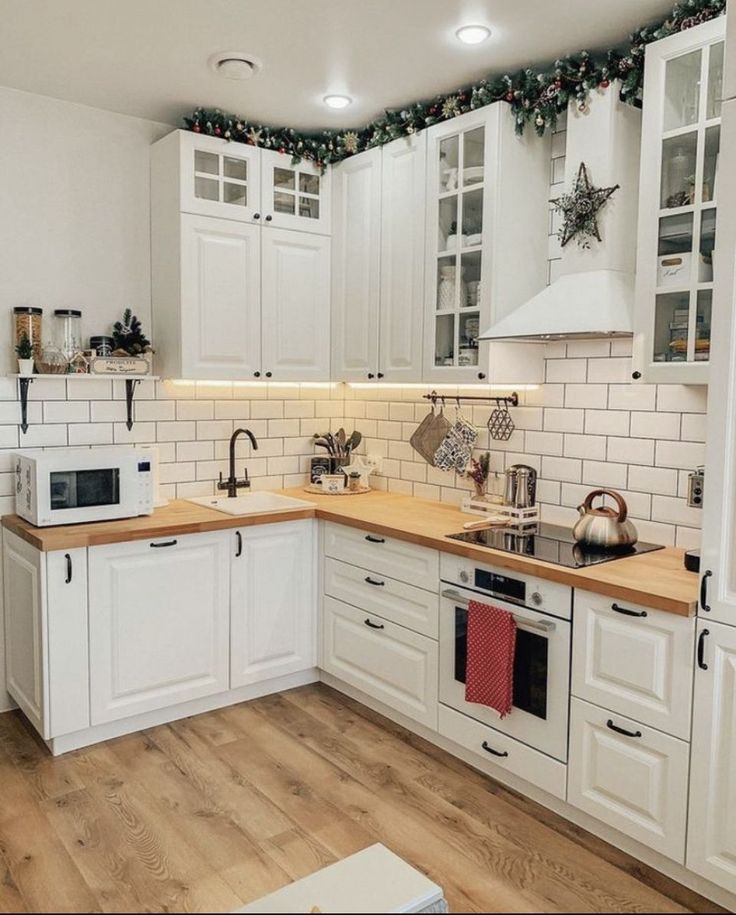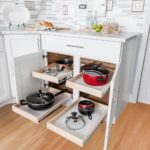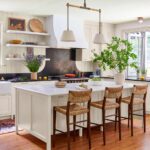The kitchen cabinet industry is experiencing a revolutionary transformation in 2025, with kitchen cabinet trends evolving to meet the demands of modern homeowners, contractors, and designers. As a leading wholesale provider of RTA (Ready-To-Assemble) cabinets, RTG Cabinets has identified the most significant trends shaping the industry this year. Whether you’re a contractor seeking bulk solutions, a designer creating stunning spaces, or a retailer looking to stock the latest styles, understanding these trends is crucial for success in today’s competitive market.
The convergence of style and functionality has never been more pronounced, with consumers demanding cabinets that not only look exceptional but also maximize storage efficiency and incorporate smart technology. This comprehensive guide explores the top kitchen cabinet trends that are defining 2025, providing wholesale buyers, contractors, and design professionals with the insights needed to make informed purchasing decisions.
Color Revolution: Beyond Traditional Wood Tones
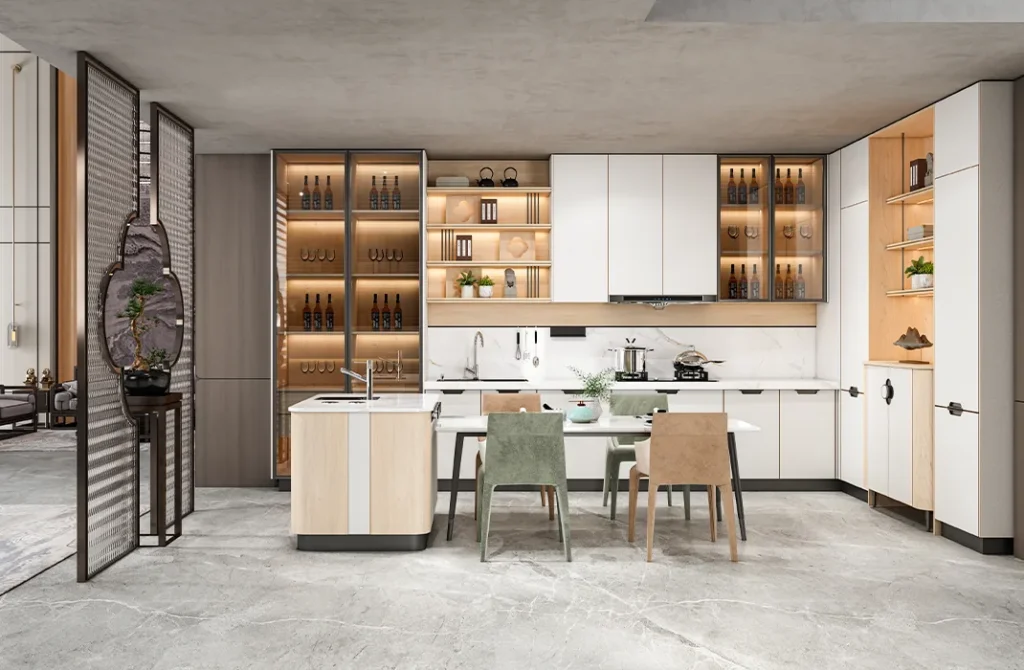
Two-Tone Kitchen Cabinets Lead the Market
The trending cabinet colors for 2025 showcase bold contrasts and sophisticated combinations that create visual depth and architectural interest. Two-tone kitchen cabinets have become the cornerstone of contemporary design, representing nearly 40% of all new kitchen installations according to recent industry data. This trend offers contractors and designers flexibility in creating unique spaces while maintaining broad market appeal.
Popular two-tone combinations dominating the wholesale market include:
- Navy blue lower cabinets paired with crisp white or warm cream uppers
- Deep forest green bases complemented by natural wood tone upper cabinets
- Charcoal gray foundations accented with light oak or maple uppers
- Rich burgundy lower cabinets with soft gray upper units
The appeal of two-tone designs extends beyond aesthetics, offering practical benefits for wholesale buyers. These combinations allow for cost-effective inventory management, as base colors can be mixed and matched to create multiple design options from fewer SKUs.
Warm Earth Tones Create Inviting Spaces
Moving decisively away from the stark whites that dominated previous years, 2025 embraces warm, earthy colors that create inviting, livable spaces. Modern kitchen cabinets 2025 feature rich terracotta, sophisticated sage green, and creamy beiges that reflect a growing desire for comfort and connection to nature.
These earth-inspired colors perform exceptionally well in both residential and commercial applications, making them ideal for contractors working on diverse projects. The versatility of these hues allows them to complement various design styles, from modern farmhouse to contemporary minimalist aesthetics.
High-Gloss vs Matte Cabinet Finishes: The Ongoing Debate
The choice between high-gloss and matte finishes continues to influence purchasing decisions, with each serving distinct market segments. High-gloss finishes excel in smaller spaces, reflecting light to create an illusion of spaciousness while offering easy cleaning for busy households. These finishes are particularly popular in urban markets where space optimization is crucial.
Conversely, matte finishes provide sophisticated, contemporary appeal while effectively hiding fingerprints, water spots, and daily wear. For contractors serving families with children or high-traffic commercial spaces, matte finishes offer superior practicality without sacrificing style.
Functional Design Innovations
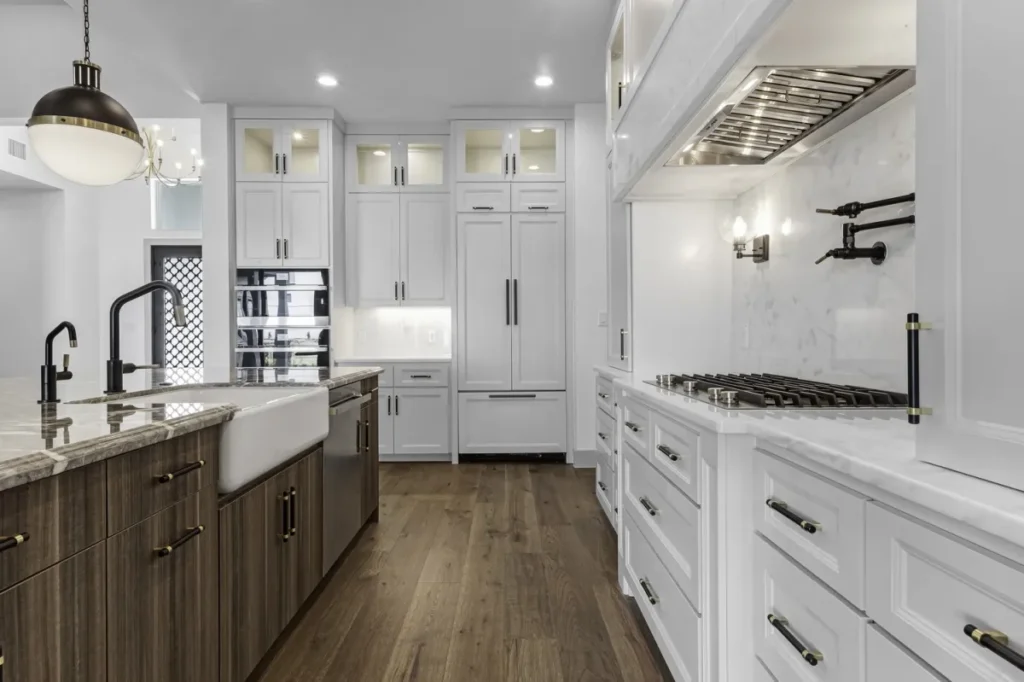
Smart Storage Kitchen Cabinets Maximize Efficiency
Functional kitchen cabinet designs have evolved far beyond simple box construction, incorporating innovative storage solutions that address modern lifestyle needs. Built-in kitchen organization systems are transitioning from luxury upgrades to standard features, driven by consumer demand for maximum storage efficiency.
Revolutionary storage innovations reshaping the industry include:
Base Cabinet Innovations:
- Full-extension soft-close drawers with weight ratings up to 150 pounds
- Pull-out trash and recycling systems with odor control features
- Deep drawer bases that eliminate the need for traditional shelving
- Corner cabinet solutions featuring rotating shelves and pull-out mechanisms
Upper Cabinet Advances:
- Lift-up door systems that provide full access without protruding into workspace
- Vertical divider systems for baking sheets, cutting boards, and serving trays
- Integrated spice rack systems with adjustable shelving
- Glass-front display areas with interior lighting options
Minimalist Kitchen Cabinetry Embraces Clean Lines
Minimalist kitchen cabinetry continues to gain market share, emphasizing clean lines, uncluttered surfaces, and seamless integration with appliances. This trend particularly appeals to younger demographics and urban markets where space efficiency and aesthetic simplicity are highly valued.
Key elements of minimalist design include:
- Handle-less cabinet doors utilizing push-to-open mechanisms or integrated finger pulls
- Seamless appliance integration that creates uninterrupted visual flow
- Hidden storage solutions that maintain clean, uncluttered appearances
- Consistent color palettes that create cohesive, calming environments
For wholesale buyers, minimalist designs offer advantages in inventory management and installation efficiency, as the simplified hardware requirements reduce complexity and potential points of failure.
Floor-to-Ceiling Kitchen Cabinetry Maximizes Storage
The trend toward floor-to-ceiling kitchen cabinetry addresses the growing need for storage optimization while creating dramatic visual impact. This approach is particularly valuable for contractors working on smaller homes, apartments, or condominiums where every cubic foot of storage matters.
Benefits of floor-to-ceiling installations include:
- Up to 40% more storage capacity compared to standard-height installations
- Enhanced visual height that makes spaces appear larger
- Elimination of dust-collecting spaces above cabinets
- Opportunity for crown molding integration that creates custom appearance
Material and Finish Trends
Frameless vs Framed Kitchen Cabinets: Technical Considerations
The frameless vs framed kitchen cabinets debate continues to influence design and purchasing decisions, with each construction method offering distinct advantages for different applications and markets.
Frameless Cabinet Advantages:
- Approximately 10% more interior storage space due to full-access openings
- Contemporary, European-inspired aesthetic appeal
- Easier cleaning and maintenance with fewer crevices
- Simplified installation process for experienced contractors
Framed Cabinet Benefits:
- Enhanced structural stability, particularly important for heavy stone countertops
- Traditional aesthetic that appeals to classic design preferences
- Superior alignment capabilities for older homes with settling issues
- Generally lower cost due to simpler manufacturing processes
For wholesale buyers, understanding regional preferences is crucial, as coastal markets tend to favor frameless construction while traditional markets often prefer framed options.
Eco-Friendly Kitchen Cabinet Materials Drive Market Growth
Sustainability concerns are reshaping material selection, with eco-friendly kitchen cabinet materials experiencing unprecedented demand growth. This trend is driven by both consumer environmental consciousness and building code requirements in many jurisdictions.
Leading sustainable materials include:
Bamboo Construction:
- Rapid renewable resource with 3-5 year growth cycles
- Superior strength-to-weight ratio compared to traditional hardwoods
- Natural antimicrobial properties ideal for kitchen environments
- Distinctive grain patterns that create unique aesthetic appeal
Reclaimed Wood Options:
- Environmentally responsible use of existing timber resources
- Unique character and patina impossible to replicate in new materials
- Premium pricing potential due to scarcity and craftsmanship requirements
- Strong appeal to environmentally conscious consumer segments
Low-VOC Finishing Systems:
- Improved indoor air quality through reduced chemical emissions
- Compliance with increasingly strict environmental regulations
- Enhanced worker safety during manufacturing and installation
- Growing requirement for LEED certification projects
Textured and Natural Wood Grains Showcase Authenticity
Natural wood textures are experiencing a renaissance, with emphasis on showcasing the wood’s inherent character through live edges, varied grain patterns, and minimal processing. This trend reflects a broader cultural movement toward authenticity and connection with natural materials.
Popular wood species and treatments include:
- White oak with wire-brushed textures that emphasize grain patterns
- Walnut with natural edge details for waterfall countertop integration
- Hickory with pronounced grain variation for rustic applications
- Maple with subtle texture enhancement for contemporary settings
Hardware and Accessories
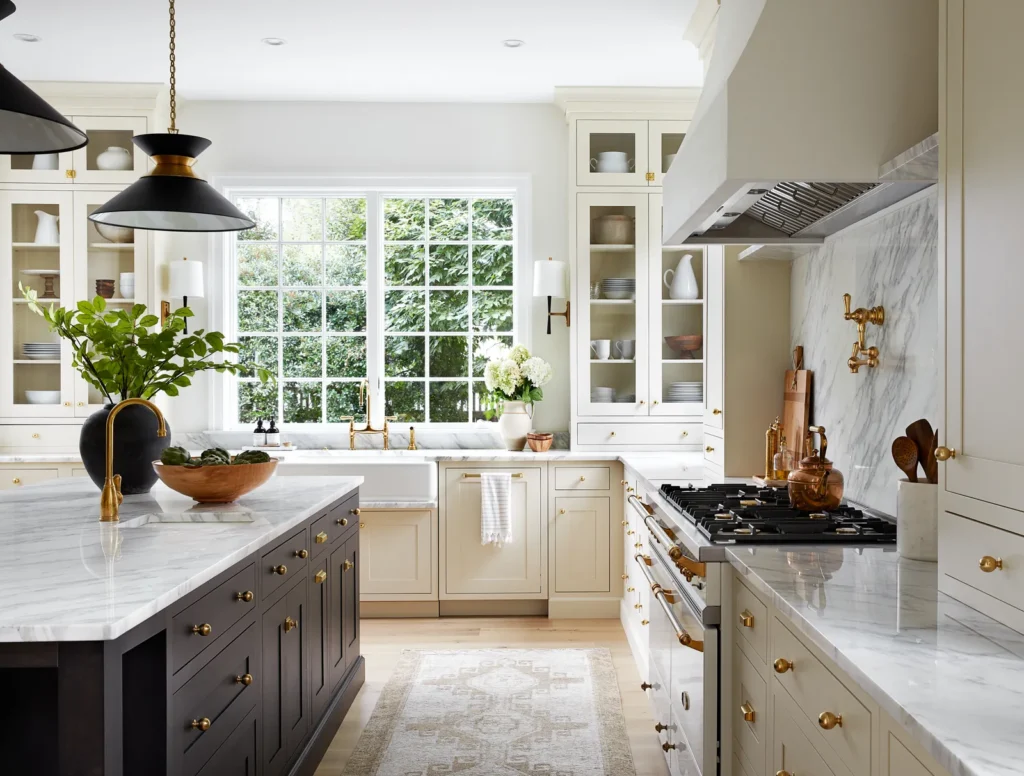
Kitchen Cabinet Handle Trends Emphasize Statement Pieces
Kitchen cabinet handle trends for 2025 emphasize both functionality and aesthetic impact, with hardware serving as jewelry for cabinet designs. The trend toward oversized pulls and unique finishes allows contractors to create distinctive looks while maintaining broad market appeal.
Trending hardware styles include:
Oversized Pulls and Handles:
- 12-inch and longer pulls for drawers and wide cabinet doors
- Brass finishes in both polished and brushed variations
- Matte black hardware that complements multiple color schemes
- Mixed metal combinations that add visual interest and sophistication
Integrated Hardware Solutions:
- Finger pulls routed directly into cabinet doors and drawers
- Edge pulls that maintain clean lines while providing functionality
- Push-to-open mechanisms that eliminate visible hardware entirely
- Leather and wood accent pulls for unique tactile experiences
Soft-Close Cabinet Hardware Becomes Standard
Soft-close cabinet hardware has transitioned from premium upgrade to expected standard feature across all market segments. This technology enhances user experience while extending cabinet life by preventing slamming and reducing wear on hinges and drawer slides.
Technical advances in soft-close technology include:
- Improved damping mechanisms that provide consistent performance
- Weight-adjustable systems that accommodate varying door sizes
- Integrated LED lighting that activates with door opening
- Self-adjusting hinges that maintain proper alignment over time
Open Shelving Alternatives Balance Function and Style
While open shelving remains popular, open shelving alternatives are emerging that combine the accessibility of open storage with the cleanliness and organization of closed cabinets. These hybrid solutions appeal to consumers who want display opportunities without constant maintenance requirements.
Innovative shelving solutions include:
- Glass-front cabinets with interior lighting for display purposes
- Retractable doors that can be hidden when open storage is desired
- Mesh or perforated metal doors that provide ventilation while containing contents
- Sliding barn door systems that offer flexible access options
Sustainable and Eco-Friendly Options
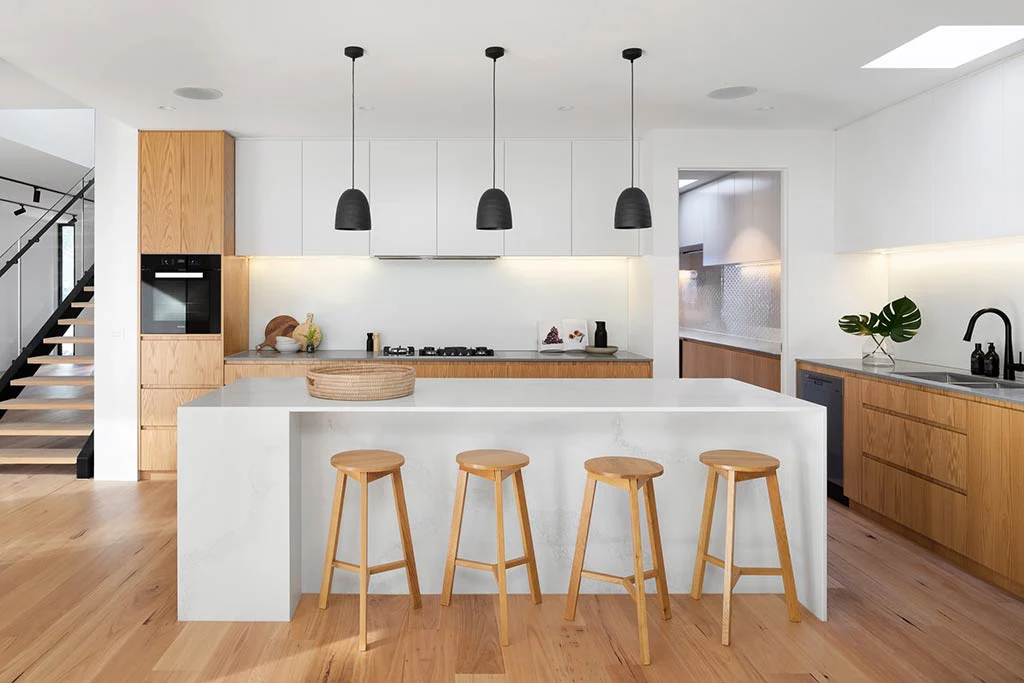
Sustainable Manufacturing Practices Transform Production
Wholesale suppliers like RTG Cabinets are implementing comprehensive sustainable manufacturing practices that reduce environmental impact while maintaining product quality and competitive pricing. These initiatives respond to both regulatory requirements and consumer demand for environmentally responsible products.
Key sustainability initiatives include:
Waste Reduction Programs:
- Closed-loop manufacturing systems that recycle sawdust and wood scraps
- Precision cutting technologies that minimize material waste
- Packaging optimization that reduces shipping volume and materials
- Take-back programs for cabinet refurbishment and recycling
Energy-Efficient Production Methods:
- Solar and wind power integration in manufacturing facilities
- LED lighting systems that reduce energy consumption by up to 60%
- Heat recovery systems that capture and reuse production heat
- Equipment upgrades that improve efficiency while reducing emissions
Recycled and Upcycled Materials Create Unique Products
The incorporation of recycled and upcycled materials in cabinet construction offers contractors and designers environmentally responsible options that don’t compromise on quality or aesthetics. These materials often provide unique character and storytelling opportunities that appeal to environmentally conscious consumers.
Popular recycled material applications include:
- Reclaimed barn wood for rustic and farmhouse designs
- Recycled metal accents for industrial and contemporary styles
- Upcycled glass for cabinet door inserts and decorative elements
- Composite materials made from recycled wood fibers and plastics
Technology Integration
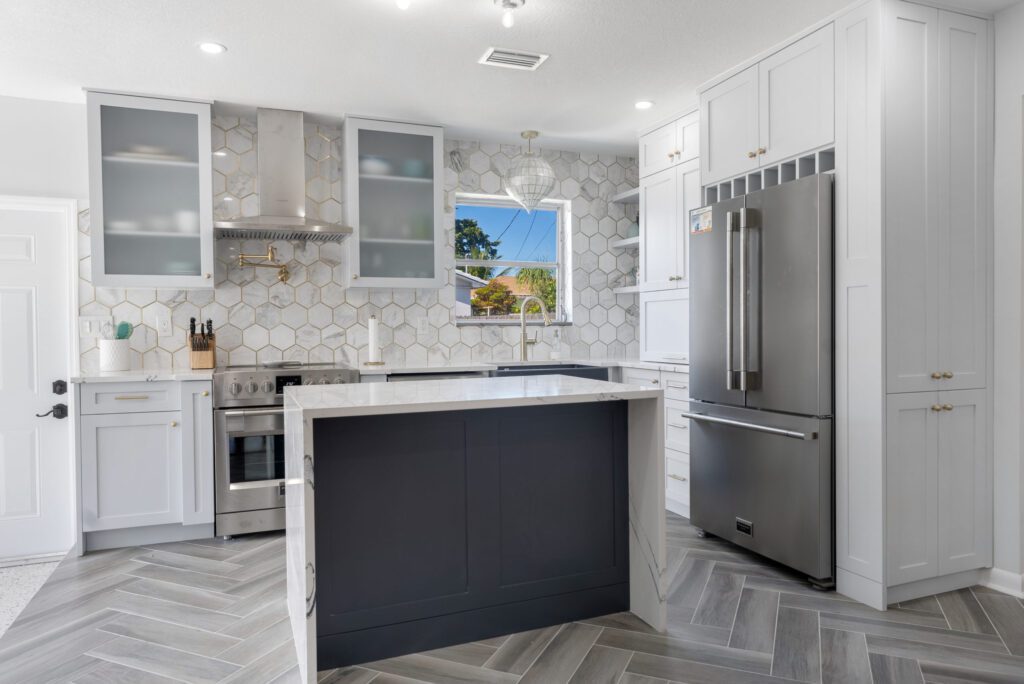
Smart Cabinet Features Enhance Functionality
Technology integration in modern kitchen cabinets 2025 extends beyond simple LED lighting to include sophisticated systems that enhance daily kitchen activities. These features appeal particularly to tech-savvy consumers and high-end market segments.
Cutting-edge technology features include:
Intelligent Lighting Systems:
- Motion-activated LED strips that illuminate cabinet interiors
- Color-temperature adjustable lighting that adapts to time of day
- Smartphone app control for customized lighting scenes
- Battery-powered systems that eliminate wiring requirements
Integrated Charging Solutions:
- USB outlets built into drawer systems for device charging
- Wireless charging pads integrated into cabinet shelving
- Pop-up charging stations that remain hidden when not in use
- Dedicated device storage with ventilation for heat management
Automated Storage Solutions:
- Motorized shelving systems that adjust height electronically
- Automated drawer mechanisms activated by proximity sensors
- Voice-controlled cabinet opening systems for accessibility
- Inventory tracking systems that monitor cabinet contents
Market Impact for Wholesale Buyers
Regional Preferences Shape Inventory Strategies
Understanding regional preferences is crucial for wholesale buyers developing inventory strategies that maximize turnover while minimizing carrying costs. Market research indicates significant regional variations in style preferences, color choices, and feature priorities.
Coastal Market Preferences:
- Contemporary and transitional styles dominate
- Light colors and natural materials preferred
- High-end features and technology integration expected
- Sustainability credentials increasingly important
Traditional Market Characteristics:
- Classic and farmhouse styles remain popular
- Warm wood tones and traditional colors preferred
- Value-oriented purchasing decisions prioritized
- Proven designs with broad appeal favored
Urban Market Trends:
- Space-efficient designs essential
- Modern and minimalist styles preferred
- Smart storage solutions highly valued
- Premium finishes justify higher price points
Pricing Strategies for Trend-Forward Products
Implementing effective pricing strategies for trend-forward products requires balancing market demand with production costs and competitive positioning. Successful wholesale buyers develop tiered pricing structures that capture various market segments while maintaining healthy margins.
Premium Tier Strategy:
- Latest trends and advanced features command 20-30% price premiums
- Limited availability creates urgency and exclusivity
- High-margin accessories and upgrades increase average order value
- Custom options provide differentiation from competitors
Volume Tier Approach:
- Popular trends adapted for mass market pricing
- Simplified feature sets reduce production costs
- Bulk purchasing agreements improve margin performance
- Standardized configurations streamline inventory management
Frequently Asked Questions
How do I choose between frameless and framed cabinets for my projects?
Frameless vs framed kitchen cabinets selection depends on multiple factors including target market, budget constraints, and design objectives. Frameless cabinets provide approximately 10% more storage space and contemporary aesthetics, making them ideal for modern projects and space-conscious applications. Framed cabinets offer traditional appeal, enhanced structural stability, and generally lower costs, making them suitable for value-oriented projects and classic design schemes.
What makes kitchen cabinets functional in 2025?
Functional kitchen cabinet designs prioritize intelligent storage solutions, accessibility, and user experience. Key functional elements include full-extension soft-close drawers, corner cabinet optimization systems, vertical storage dividers, and built-in organization features. Smart storage kitchen cabinets incorporate pull-out mechanisms, rotating shelves, and specialized compartments that maximize storage efficiency while improving daily usability.
Are eco-friendly cabinet materials more expensive for wholesale buyers?
While eco-friendly kitchen cabinet materials may carry higher initial costs, they often provide superior long-term value through enhanced durability, market appeal, and regulatory compliance. Many wholesale suppliers now offer competitive pricing on sustainable options due to improved manufacturing efficiency and increased demand. The premium pricing potential for eco-friendly products often justifies the additional investment for contractors serving environmentally conscious markets.
What hardware trends should contractors focus on for maximum market appeal?
Kitchen cabinet handle trends for 2025 emphasize oversized pulls, mixed metal finishes, and integrated solutions that complement various design styles. Soft-close cabinet hardware has become standard across all market segments, while smart features like integrated lighting and charging capabilities appeal to premium markets. Contractors should focus on quality mechanisms that enhance user experience while offering broad compatibility with multiple cabinet styles and finishes.
Conclusion
The kitchen cabinet trends of 2025 represent a sophisticated evolution that perfectly balances aesthetic appeal with practical functionality. For contractors, retailers, and designers working with wholesale suppliers like RTG Cabinets, understanding these trends provides a competitive advantage in meeting client expectations while maximizing project profitability.
The emphasis on functional kitchen cabinet designs, sustainable materials, and technology integration positions the industry for continued innovation and growth. Whether sourcing modern kitchen cabinets 2025 for large-scale developments or selecting custom kitchen cabinet ideas for high-end residential projects, these trends provide a comprehensive roadmap for success in today’s dynamic market.
The convergence of style and function, combined with growing environmental consciousness and technological advancement, creates unprecedented opportunities for forward-thinking wholesale buyers and contractors. Success in this evolving market requires staying informed about emerging trends while maintaining focus on proven designs that deliver consistent performance and customer satisfaction.
Ready to incorporate these cutting-edge trends into your next project? Contact RTG Cabinets for comprehensive wholesale pricing and custom solutions tailored to your specific requirements. Our experienced team can help you navigate these trends and identify the perfect cabinet solutions for your clients’ needs. Get a quote today to discover how these trending styles can enhance your project success and customer satisfaction.
Contact Information:
- Phone: +1 (888) 211-6482
- Email: info@rtgcabinets.com
- Website: RTG Cabinets
- Shop Now for immediate availability
Source Links
- National Kitchen & Bath Association – NKBA – https://nkba.org
- Kitchen Cabinet Manufacturers Association – KCMA – https://kcma.org
- Sustainable Furnishings Council – SFC – https://sustainablefurnishings.org
- Interior Design Magazine – Interior Design – https://interiordesign.net
- Green Building Council – USGBC – https://usgbc.org







